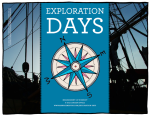Some companies have stopped defining how many days in the year employees can go on…
I Tried Education Days, Didn’t Work
I once introduced the concept of education days. Every employee in the company was entitled to a number of days per year (we started with twelve) that they should use for self-education. It didn’t matter whether they spent it on reading a book, attending a conference, experimenting with a new technology, or building a prototype of some crazy idea. Anything was fine as long as they learned something. It was almost the same as vacation days. But instead of spending those days exploring bars and beaches, we expected people to explore techniques and technologies. It touched upon intrinsic motivators such as mastery, curiosity, and freedom. I thought it was a good idea.
Well, it was. But it didn’t work.
Education, Not Vacation
The idea was worth trying because apparently it does work in some other organizations. Google has their famous 20 percent time. Employees are allowed to spend 20% of their time working on any idea that interests them. This not only works as a good motivator; the practice is also a generator of many fresh ideas. Products such as Gmail and AdSense were conceived in 20 percent time.
Unfortunately, my organizational reality proved more stubborn. Software developers argued they always had more urgent things to do. They had project deadlines to consider, customer demos to prepare, and meetings to attend. (And probably also some games to play.) Therefore they saw no opportunity to make use of their education days, they said to me. I replied that this was strange, because the same people had no problems making use of their vacation days. A more logical explanation seemed to me that they didn’t consider their education to be as desirable as their vacation. Education was in their eyes just another task to be prioritized by management. Important maybe, but not urgent.
Important, Not Urgent
Experienced knowledge workers know that important things and urgent things rarely overlap. Doing what’s good for you, and developing useful habits, takes motivation and discipline, like flossing your teeth, eating vegetables, and going to the gym. People need to grow into it. (I’ve managed the first one, but I’m still working on the other two.) Because organizations cannot really change people, a good alternative is to tweak the environment so that people change themselves and start developing the desired habits.
 One way to do this, is with the introduction of Exploration Days (or ShipIt days or FedEx days or Hack days or Hackathons). They are a small but significant improvement on Education Days. Read more about it in my latest article…
One way to do this, is with the introduction of Exploration Days (or ShipIt days or FedEx days or Hack days or Hackathons). They are a small but significant improvement on Education Days. Read more about it in my latest article…
This post is an excerpt from my new article called Exploration Days. Do you want exclusive access to innovative practices? Do you want to be the first to read the new articles? Do you want to learn more about Management Workout?






